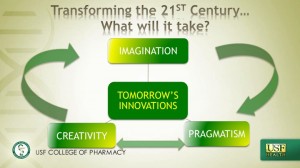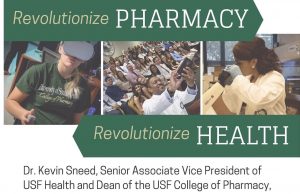This summer, I will be publishing meaningful excerpts from previous posts; as I reviewed them, many are just as relevant in 2019 – 2020 as when I first published them. These excerpts are meant to generate thoughts about practice transformation, how to speed it along, and why it is imperative that it happen now. Enjoy!
The following are excerpts from a previous post creating the argument that Interprofessional Teams must occur for Health Systems to succeed. This reigns even more true today than when it was originally published.
“During the past several months, I have been engaged in a number of meetings with health professionals from almost every sector of the health system. This includes CEOs, CMOs, researchers, community-outreach professionals, hospitals, community pharmacies, federally-qualified healthcare centers, and individual health providers. It has been rewarding to hear them all accept the basic premise associated with health reform measures, with the focus being on providing high quality health services, enhanced patient safety, and achieving improved, measurable outcomes. All at lower costs than we realize today. Regardless of the politics involved with healthcare reform, we are rapidly moving to a health-system that will hold health providers more accountable for the care that is provided to patients. If we remember the Institute of Medicine Report from 2001, Crossing the Quality Chasm: A New Health System for the 21st Century, we find that a fair number of the recommendations made in that report are the foundation of many of today’s reforms. And, these recommendations were made long before the initiation of the Affordable Care Act. However, we cannot take another 10-plus years to implement these necessary changes. Patients (especially Baby Boomers) are ready today…How can we create similar teams to treat entire communities? Here are some of my thoughts:
1) Revise Health Education for health professions students. The Interprofessional Education Collaborative was organized to create the “how-to roadmap” for teaching and training health professions students. This offers the best hope for transforming future healthcare landscapes. This was also a foundation of the IOM report.
2) Advanced utilization of Informatics. If interprofessional teams are to function effectively, there must be shared information among these professionals. Also, there must be an opportunity for patients to have access to this information. After all, it is THEIR information.
3) Implementation of Emerging Disruptive Technologies. Emerging health technologies are outpacing clinicians’ abilities to learn and implement them into clinical practice. Further, there are significant gaps in knowledge about the effectiveness of these technologies. Concomitant study and assessment of these technologies must be undertaken. Mobile Health technologies (prior blog) and Personalized Medicine (pharmacogenomics; DNA-based clinical decision-making tools) are two key futuristic technologies to watch.
4) Realistic Reimbursement Models. The databases of major health systems are driving informed decisions about the costs of health for patients. Morphing away from fee-for-service to realistic outcomes-driven payment models can allow for appropriate reimbursement of all health professionals that provide advanced care. Pharmacists, for example, should automatically be educating, monitoring, and assisting in the management and effectiveness of cardiovascular (chronic illness) medications, while being reimbursed for that service in addition to the product being dispensed. Information should be sharable between professionals associated with the care of a single patient, and the patient must remain at the center of all health-related decisions. And, all health professionals must be held reasonably accountable for achieving positive outcomes associated with delivery of health provisions.
One thing is certain, we cannot achieve a healthier nation until operative interprofessional collaborations are achieved. This must happen! Patients are waiting for us to get it right! #LetsMakeItHappen”

